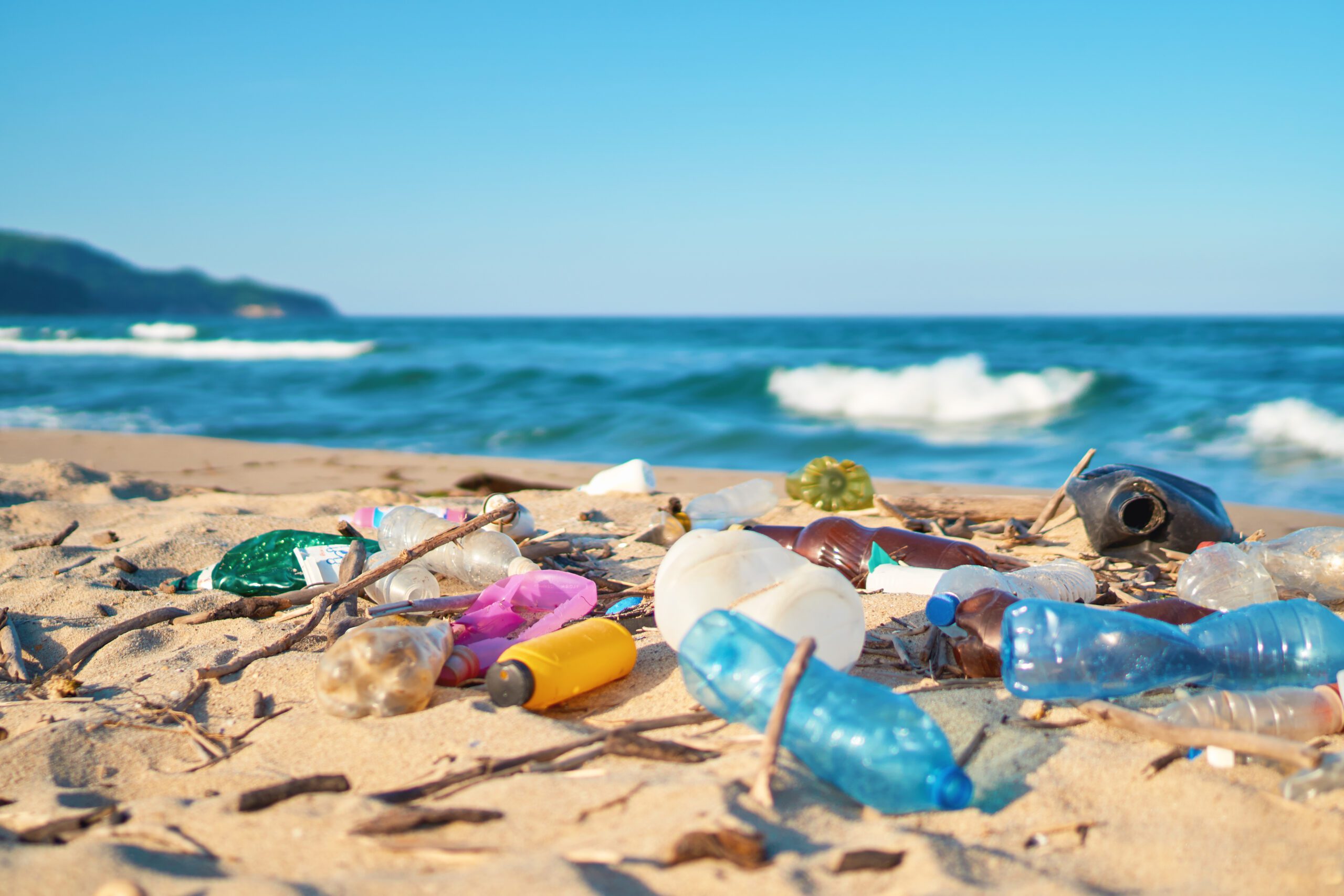Possibly the second most iconic line from the 1967 movie The Graduate, is at Benjamin’s graduation party when his neighbor, Mr. McGuire, takes him aside and says, “Benjamin, there’s a great future in plastics. Think about it. Will you think about it?”
And Benjamin replies, “Plastics. Yes. Yes I will.”
Mr. McGuire sure was right! Today our world is full of plastics.
From 2000 to 2022 the world has manufactured more plastics than it did in the entire 20th Century! Plastics are so durable the EPA estimates that every bit of plastic ever made still exists.
The world is so full of plastics that they’re one of the biggest polluters of our oceans.
There’s an area in the Pacific Ocean between California and Hawaii called the Great Pacific Garbage Patch that has the largest collection of ocean plastic pollution in the world.
70% to 80% of that plastic pollution has flown into the ocean from rivers and streams. The remaining 20% to 30% is from marine sources such as discarded fishing nets and lines.
Plastics accumulating in the oceans now amount to more than 40 billion pounds. About 8-9 million metric tons end up in the oceans every year. That’s the equivalent of a garbage truck emptying plastics into the ocean every minute. And it can take thousands of years for a plastic water bottle to disintegrate, which even then means it only breaks down into smaller pieces of plastic.
Fish ingest 12,000 to 24,000 tons of plastic each year which can be deadly. At least 25% of the fresh fish sold at markets that are eaten by humans have plastic in them. When we eat fresh fish we may also be ingesting deadly plastic.
It makes me think about the amount of plastics I use. And makes me question how much I can reduce my use of plastics. I’m trying to reduce the amount of plastic bottled waters I use by keeping a pitcher of tap water in my fridge.
If we stop buying products encased in plastic, how long would it take for manufacturers to come up with different packaging? Is it even possible to stop buying products encased in plastic? Would our world be less polluted if we reverted back to the time when these items were sold in glass bottles that would be returned, cleaned and reused?
Back then if you wanted multi packs the glass bottles were put in cardboard carrying cases, not wrapped in plastic web carriers. And buying bottled water, which is almost universally plastic bottles, was unheard of in the 1950s. Individual plastic bottles of water were introduced in the late 1960s by the French company Vittel for their mineral water. Other companies quickly followed suit.
Worldwide, we consume more than 100 billion gallons of bottled water a year. That’s the equivalent of 1 million plastic bottles each minute.
Items now sold in shrink wrap plastic packaging used to be sold loose, per piece, put in bins in stores where you picked up what you wanted, took it to the cashier, and paid for it. But that was when we shopped locally in locally owned stores; not big chain stores. Rises in shoplifting and retail theft make that impractical today.
Each trip to my grocery store results in purchases of many products encased in plastic. Meats are usually shrink wrapped with plastic. Most condiments are now in plastic containers. And I am a prolific user of plastic wrap and Zip Lock plastic bags. Everything I buy is put in plastic bags to carry home. When I put out trash for my waste hauler to pickup, it’s in large plastic bags.
My first step in reducing plastics will be to stop letting the grocery store put my purchases in plastic bags. Instead I’ll grab the dozens of cloth tote bags I have and take them with me and keep a couple in my car for when I do errands at the drug store or local shopping. That will at least eliminate the piles of plastic bags I get each month from making purchases.
If each of us reduces our use of plastics, one step at a time, we may be able to reduce what has become a mammoth problem of pollution and we could hopefully improve the world our grandkids inherit. It’s something we should try to do.
“There is no such thing as ‘away’. When we throw anything away it must go somewhere.”
Annie Leonard
If you enjoyed this blog and know someone else who would enjoy it, please share it.


Same problem, different arena…what about disposing windmill blades and electric car batteries? I read of potential solutions, but am not aware we actually have any (hope we actually do have viable solutions about which I’m just ignorant), but we keep pumping them out. Have we learned nothing?
You are so right! And all these electronic gadgets that go obsolete. We are creating a pollution nightmare. I think it may be my age, but I’m truly ready to turn back the calendar to a time when we all were more accustomed to a reuse and repurpose life style instead of a disposable one.